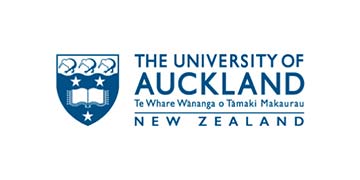University of Auckland: Taming Delta: leading US scientist Eric Topol on what’s needed
Mass vaccinations, booster shots and public health measures will get the world to a “better state” in 2022, said Dr Topol, who’s a visiting professor to the University of Auckland, working with the National Institute for Health Innovation. He briefed University staff and journalists by Zoom.
He is optimistic that a universal vaccine against all coronaviruses will be available as early as 2022. However, that will be only part of the journey to end the pandemic.
“We have to get the whole planet’s inhabitants vaccinated, or close to the max, pushing 8 billion,” said Dr Topol, “We can’t do that before 2023.”
Topol is the founder and director of the Scripps Research Translational Institute and editor-in-chief of Medscape, a news and information website for clinicians. His bestselling books include Deep Medicine: How Artificial Intelligence Can Make Healthcare Human Again (2019). He is a regular commentator on US management of the pandemic in media such as the New York Times and the Guardian.
Vaccinated people can still spread the disease, so basic public health measures are going to be needed for some time to come. Dr Topol pointed out that some people get vaccinated then throw caution to the wind, refusing to wear a mask.
The US is driving global Delta infections, as the nation registers as many as 140,000 cases per day. Germany recently tightened restrictions on US visitors, calling the nation a “high risk” country.
But despite the wave of infections, and high levels of protection vaccinations offer against hospitalisation and death, there has been little step-up in the number of people getting vaccinated or adopting protective behaviours in the US. States such as Louisiana with low vaccination rates have the highest hospitalization and death rates. Mask-wearing remains controversial.
“We are failing one another,” ran a big headline on the front page of USA Today this month, urging Americans to get vaccinated, mask up, limit travel and avoid crowds where possible. “This is America’s fourth Covid-19 surge. It didn’t have to happen,” the newspaper said.
Delta’s changed the whole calculation and I don’t think people have gotten that yet
Dr Eric Topol
One of Dr Topol’s themes is the contrast between the astoundingly good scientific work which delivered a vaccine in as little as 10 months, and a woeful public health response in the US. While some people refuse to have faith in vaccines developed so quickly, he argues that 30 years’ effort, via incremental scientific advances, lay behind the breakthrough.
The “warp speed” approach also saw the advice about the time between the two vaccination shots compressed to three weeks. Dr Topol recommended a longer interval between the first and second dose of the Pfizer vaccine, a strategy New Zealand’s Ministry of Health now endorses.
Unfortunately, according to Dr Topol, close to 100 percent coverage of the population is needed for an “immunity wall.”
“Delta’s changed the whole calculation and I don’t think people have gotten that yet.”
New Zealand has several points of vulnerability for the Delta variant. Vaccination coverage is still low. And data from the Horizon-University of Auckland surveys indicate that about ten percent of the population don’t want to get vaccinated for Covid-19 under any circumstances.
We had also become complacent with simple public health measures, such as mask wearing on public transport, QR code scanning, hand washing, and getting swabbed for Covid-19 if unwell.
Six days ahead of New Zealand’s first community case of Delta emerging, Dr Topol noted: “If you know that Delta is coming to New Zealand next week, you just want to get everybody fully vaccinated.”
And the evidence from the US is clear: even after most people have been vaccinated, we need to keep up our protective public health measures.

